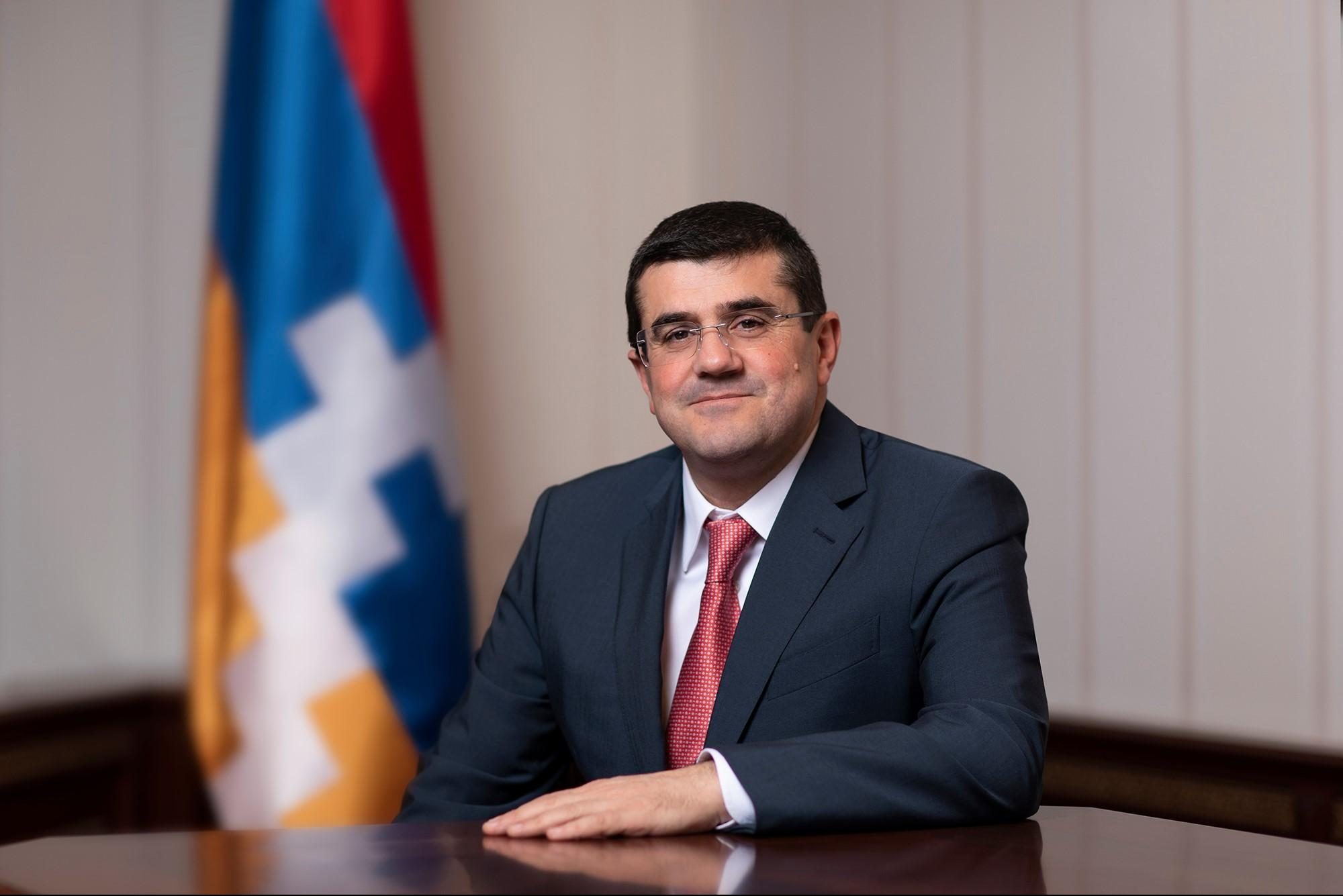
Nagorno-Karabakh president Arayik Harutyunyan is facing protests calling for his resignation in response to his apparent support for Armenia’s acting Prime Minister Nikol Pashinyan.
Large protests against Harutyunyan started on Monday in Stepanakert (Khankandi) after Harutyunyan congratulated Pashinyan on his victory in the country’s snap parliamentary elections. Earlier, as the results were being counted on Sunday night, journalists snapped a photo of Harutyunyan at the head office of Pashinyan’s Civil Contract party.
Monday’s protest, initially several dozen people, turned into a rally of thousands, outraged by Harutyunya’s message of congratulations.
‘During and after the war, Arayik Harutyunyan betrayed us. We are non-partisan, we have decided to gather in the square with friends, to raise our voice of protest. Today we are already waiting for more people to join us and force Arayik Harutyunyan to resign’, one protester told Hetq, an Armenian investigative outlet.
Protesters have vowed to continue their protests until Harutyunyan resigns, and some have accused him of ‘seizing power’ in the 2020 elections. Two of the protesters have gone on hunger strike.
Many of the demonstrators in Nagorno-Karabakh have seen the re-election of Nikol Pashinyan as legitimisation of the 9 November Tripartite Peace Declaration, which opponents have derided as a ‘capitulation’.
According to the agreement, which brought an end to 44-days of brutal fighting in the region, Armenian forces ceded control of the seven Azerbaijani regions that Armenian forces had controlled since the end of the First Nagorno-Karabakh War, as well as as those parts of the former Nagorno-Karabakh Autonomous Oblast (NKAO) that Azerbaijani forces took control of during the recent war.
During a separate rally on Tuesday, which appeared to rival the anti-Harutyunyan protest in size, the president stated that he was ready to resign at the first opportunity but that he should hold consultations first to make sure Nagorno-Karabakh was ready for snap parliamentary and presidential elections.
‘If the responses are positive, I’ll resign and snap elections will be held within a reasonable time’, Harutyunyan said, adding that he was not planning to run again and would quit politics.
Harutyunyan was elected Nagorno-Karabakh’s president in the Spring of 2020. Prior to that, he served as an adviser to the president, Prime Minister and Minister of State.
‘It would be stupid to think that I enjoy the current situation. Either I have a personal interest in continuing in office or I am clinging to a chair. Not at all’, Harutyunyan said, adding that he did not resign immediately after the war because of a sense of ‘responsibility’.
‘So that I will not suddenly destroy our statehood with my emotional and short-sighted escape’, he said.
In December 2020, Harutyunyan promised to resign once the situation was stable enough to bear the strain of snap elections.
Post-war problems
Since the war, Nagorno-Karabakh has faced severe social and security issues. While the latter is being largely addressed by Russian peacekeepers, the former requires cooperation with the authorities in Yerevan — especially for the thousands of Nagorno-Karabakh residents who have lost their homes and are living as refugees in Armenia.
‘How do you imagine solving the social problems of more than 35,000 citizens [who have lost their homes] without cooperation [with the Armenian authorities]’.
Harutyunyan said that Armenia was playing a huge role in Nagorno-Karabakh’s socio-economic recovery ‘from providing budget revenues to housing and social assistance programmes’.
The president also apologised for mistakes made during his presidency, stating that he could be blamed for ‘many things’ but that it was unfair to accuse him of ‘treason or inaction’.

He said that the war’s outcome had both internal and external reasons. Externally, the ‘objective reason was Turkish involvement’, he said but internally ‘all’ of the past leaders of Armenia and Nagorno-Karabakh, as well as ‘primarily’ the current authorities, had to be held accountable.
Harutyunyan also said that he asked both Pashinyan and Russian President Vladimir Putin to stop the war as soon as possible and added that he had demanded Pashinyan end the war on 9 November regardless of the details of the agreement.
‘Every minute meant more loss of lives and even the loss of the rest of Artsakh’, he said.
He stressed that the authorities of Nagorno-Karabakh were fully dependent on Armenia when it came to military questions, as the Nagorno-Karabakh Defence Forces were under the command of the Armenian military.
For ease of reading, we choose not to use qualifiers such as ‘de facto’, ‘unrecognised’, or ‘partially recognised’ when discussing institutions or political positions within Abkhazia, Nagorno-Karabakh, and South Ossetia. This does not imply a position on their status.






